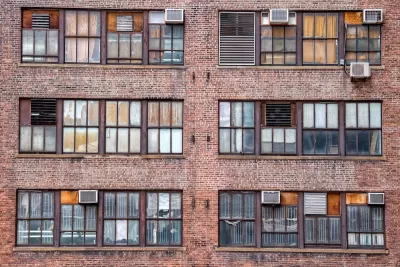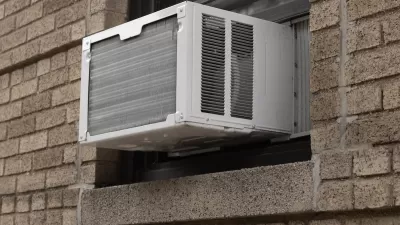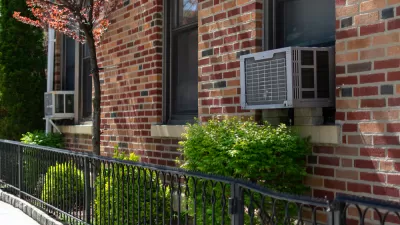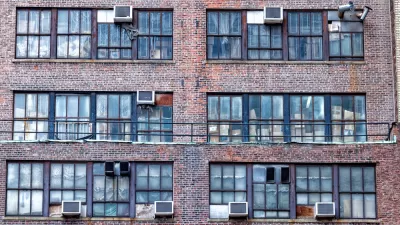Despite hundreds of heat-related deaths every year, the city has no regulations on cooling in residential units.

A New York City Council member is proposing a bill that would guarantee cooling for renters in hot summer months, arguing that a similar law guarantees heating in winter.
According to Council member Lincoln Restler of Brooklyn, “When we looked at the data of who is dying from heat-related illnesses, the single biggest risk factor was not having air conditioning in their homes.”
As Willy Blackmore explains in Word in Black, “The city’s Heat Code became law back in 1918, setting a minimum threshold of 68 degrees for all centrally heated buildings between the beginning of October and the end of May. While the minimum temperature has changed at times over more than a century, it’s a mainstay of being a renter in the city: heat and hot water are provided at the landlord’s expense, with very few exceptions.” The proposed bill would set similar requirements for cooling and include a fee of up to $1,250 per day for noncompliance.
Blackmore explains that cooling units add to landlords’ electricity costs. “Therefore, if a landlord installs a heat pump, or if they have a tenant who uses an A/C window unit, the landlord would be obliged to pay an electric bill for the heat and cooling — separate from what tenants pay for their own electricity use.”
While the majority of New York City residents (91 percent) have access to cooling, the housing units that don’t are concentrated in communities of color like Bedford-Stuyvesant, which Restler represents, and many of the city’s shelters. An average of 350 people die of heat-related causes every year in New York City, though accurate data for heat deaths is often difficult to come by.
FULL STORY: Will New York City Renters Get the Right to Be Cool?

Maui's Vacation Rental Debate Turns Ugly
Verbal attacks, misinformation campaigns and fistfights plague a high-stakes debate to convert thousands of vacation rentals into long-term housing.

Planetizen Federal Action Tracker
A weekly monitor of how Trump’s orders and actions are impacting planners and planning in America.

In Urban Planning, AI Prompting Could be the New Design Thinking
Creativity has long been key to great urban design. What if we see AI as our new creative partner?

King County Supportive Housing Program Offers Hope for Unhoused Residents
The county is taking a ‘Housing First’ approach that prioritizes getting people into housing, then offering wraparound supportive services.

Researchers Use AI to Get Clearer Picture of US Housing
Analysts are using artificial intelligence to supercharge their research by allowing them to comb through data faster. Though these AI tools can be error prone, they save time and housing researchers are optimistic about the future.

Making Shared Micromobility More Inclusive
Cities and shared mobility system operators can do more to include people with disabilities in planning and operations, per a new report.
Urban Design for Planners 1: Software Tools
This six-course series explores essential urban design concepts using open source software and equips planners with the tools they need to participate fully in the urban design process.
Planning for Universal Design
Learn the tools for implementing Universal Design in planning regulations.
planning NEXT
Appalachian Highlands Housing Partners
Mpact (founded as Rail~Volution)
City of Camden Redevelopment Agency
City of Astoria
City of Portland
City of Laramie





























